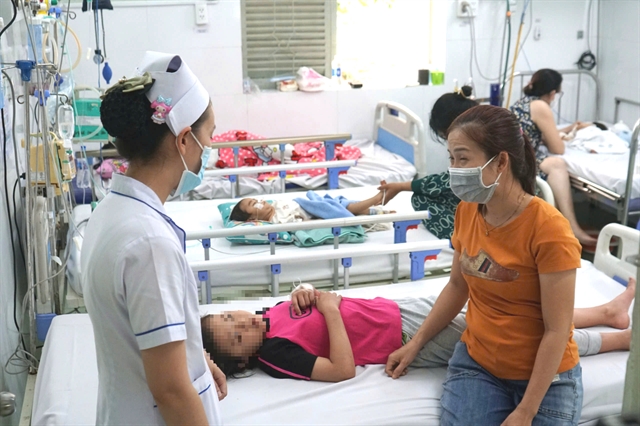September 5, 2025
HANOI – Dengue fever cases have surged dramatically across Việt Nam this year, with more than 65,000 infections and 11 deaths recorded so far, according to the Ministry of Health. The number of cases is up by nearly 21 per cent compared to last year, signalling a worrying escalation of the mosquito-borne disease nationwide.
August alone saw 21,640 new cases and six deaths, underscoring the urgent challenge facing health authorities. The southern region, especially Hồ Chí Minh City (including former provinces of Bình Dương and Bà Rịa–Vũng Tàu), has been hit hardest.
Vice director of the city Department of Health Dr Huỳnh Minh Chính revealed that more than 26,000 cases have been reported in the region this year — a staggering increase of over 220 per cent compared to the same period last year.
Other localities have also seen rising numbers, heightening concerns about the spread of the epidemic. In response, the Ministry of Health issued a directive in mid-August urging provincial and city authorities to strictly implement the Prime Minister’s Official Dispatch No 116/CD-TTg dated July 20, aimed at bolstering dengue fever prevention and control measures.
Local governments have been tasked with closely monitoring the epidemic, reviewing the situation regularly, and promptly introducing control measures to halt the spread. Health departments are also required to update their dengue prevention plans, enhance coordination across sectors and strengthen surveillance to quickly identify new cases, especially in areas with previous outbreaks or high risk.
Healthcare facilities are being called on to organise effective patient admission and treatment protocols and to train medical staff at grassroots levels in the diagnosis, care and treatment of dengue fever. Monitoring systems are being reinforced to ensure timely responses and resource allocation to combat the disease.
The ministry emphasised that the most effective way to prevent dengue remains controlling the mosquito population. This includes eliminating mosquito larvae by covering all water containers, sleeping under mosquito nets even during the day, wearing long-sleeved clothing to avoid bites and using repellents such as creams, lamps, or electric mosquito rackets.
Prompt medical attention is critical for anyone exhibiting symptoms. The ministry warned against self-treatment at home, which risks missing early warning signs and can result in complications.
Vaccination is emerging as a new tool in the fight against dengue, with the Ministry highlighting its introduction into national vaccination programmes as a positive step towards reducing infections and fatalities. However, vaccines are not a substitute for traditional prevention measures and must be part of a comprehensive strategy.
As Việt Nam confronts this rising health threat, the Government and health authorities continue to call for community cooperation and vigilance to protect lives and curb the spread of dengue fever.
